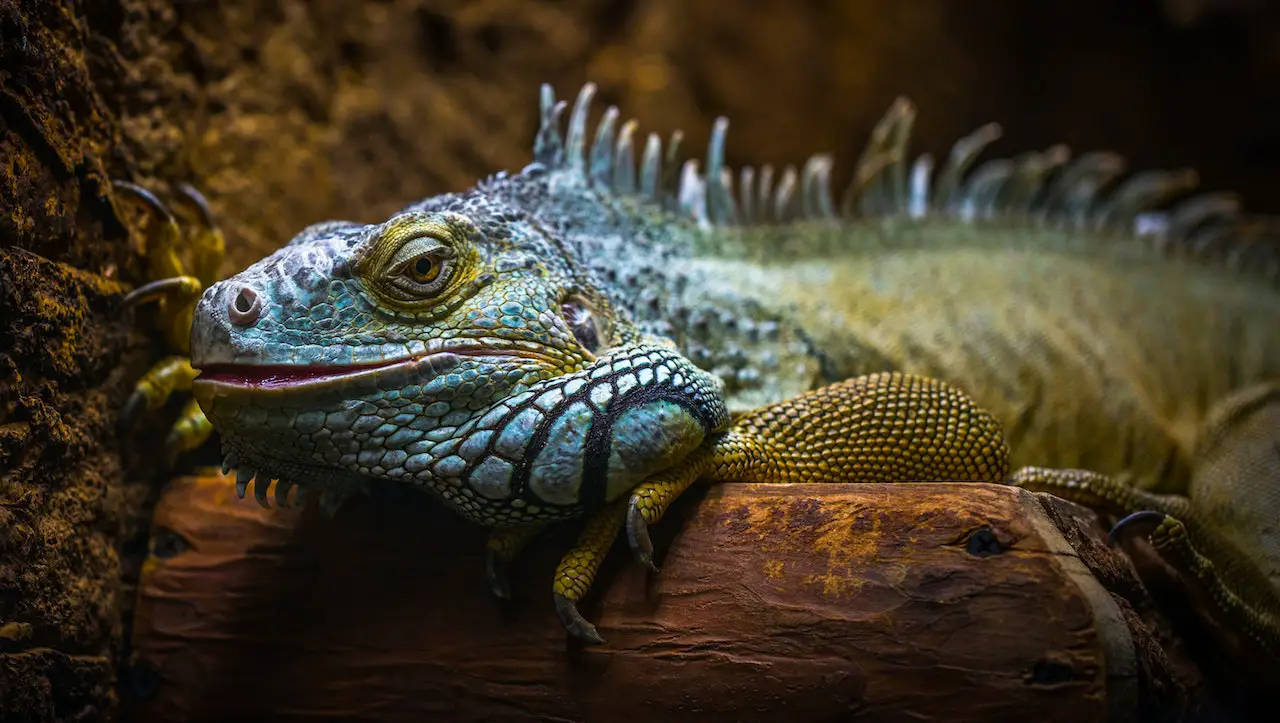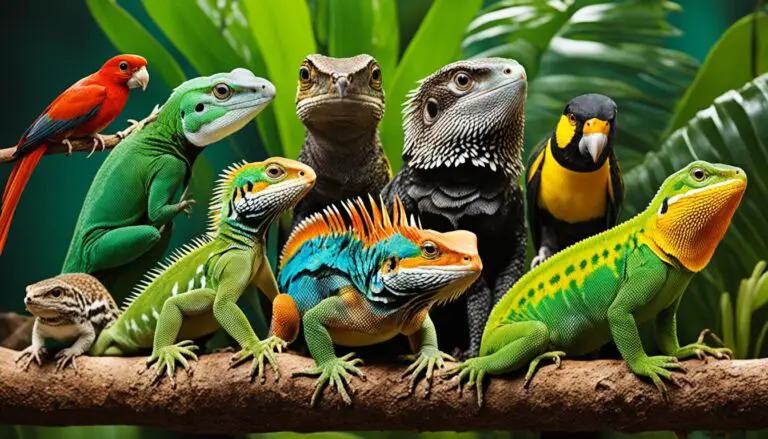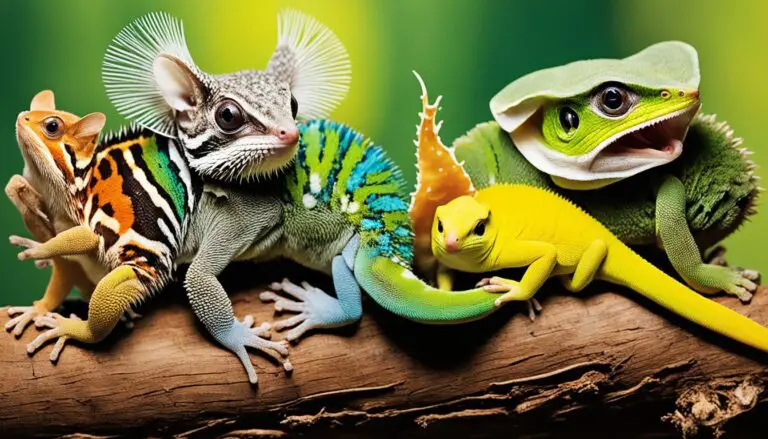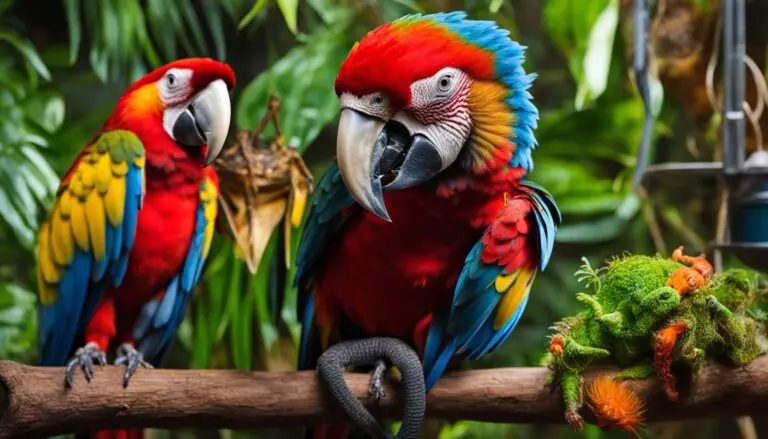How to Keep Your Exotic Pet Happy and Healthy: Ultimate Guide
Having an exotic pet can be a unique and exciting experience.
However, it comes with a great responsibility to provide them with the care and attention they need to stay happy and healthy.
Exotic pets, unlike domestic ones, require specialized care due to their unique behaviors, diets, and environmental needs.
In this guide, we’ll cover everything you need to know about how to keep your exotic pet happy and healthy.
Understanding the Needs of Your Exotic Pet
Before bringing home an exotic pet, it’s crucial to understand their specific needs.
Every species is unique and requires different care, diet, and environmental conditions to thrive. Here are a few factors to consider:
- Habitat: What type of enclosure does your pet need? Does it need a heat lamp or UV light?
- Diet: What does your pet eat? Do they require any special supplements?
- Behavior: What is your pet’s natural behavior? Do they need space to roam or climb?
- Socialization: Does your pet require interaction with other animals or humans?
- Health: What health issues are common in your pet’s species, and how can you prevent them?
Keeping Your Exotic Pet Happy and Healthy
Taking care of an exotic pet requires commitment and dedication.
Here are some essential tips to ensure your pet stays happy and healthy:
Provide a suitable environment
The first step to keeping your exotic pet happy and healthy is to provide a suitable environment.
This includes the correct temperature, humidity, and lighting. It’s crucial to do your research and provide your pet with a habitat that mimics their natural environment as closely as possible.
For example, reptiles often require heat lamps to stay warm, while birds need a variety of perches to climb on.
Offer a balanced diet
Your pet’s diet is an essential aspect of their health and happiness.
Each species has different dietary requirements, so it’s crucial to do your research and provide a balanced and varied diet. Offer your pet fresh fruits, vegetables, and high-quality protein sources.
Additionally, make sure they have access to clean water at all times.
Encourage exercise and enrichment
Exotic pets need exercise and mental stimulation to stay happy and healthy.
Provide them with plenty of toys, climbing structures, and hiding places to keep them entertained.
For example, birds enjoy playing with toys and solving puzzles, while reptiles like to climb and explore their environment.
Maintain good hygiene
Good hygiene is crucial for the health of your exotic pet.
Regularly clean and disinfect their enclosure, food and water dishes, and toys to prevent the growth of harmful bacteria.
Also, make sure to provide your pet with fresh bedding or substrate to prevent the buildup of waste and bacteria.
Schedule regular check-ups
Just like domestic pets, exotic pets require regular check-ups with a veterinarian who specializes in their species.
They can help you identify any potential health issues and provide preventive care, such as vaccinations or parasite control.
Bond with your pet
Exotic pets thrive on social interaction and bonding with their owners.
Spend time with your pet every day, whether it’s through handling, training, or playtime. This will strengthen your bond and provide them with the attention and stimulation they need.
Conclusion
Keeping an exotic pet happy and healthy requires a commitment to meeting their unique needs and providing them with the care and attention they deserve.
By understanding their specific requirements, offering a suitable environment, providing a balanced diet, encouraging exercise and enrichment, maintaining good hygiene, scheduling regular check-ups, and bonding with your pet, you can ensure they live a happy and healthy life in captivity.
Remember, owning an exotic pet is a significant responsibility that requires research, preparation, and dedication. With the right care and attention, you can provide your exotic pet with a fulfilling and rewarding life.
FAQs
What is the best exotic pet for a first-time owner?
This depends on your lifestyle, living situation, and personal preferences.
It is essential to research different exotic pets and choose the one that is right for you.
How often should I take my exotic pet to the vet?
Exotic pets require regular visits to the vet, typically every six months to a year.
How can I tell if my exotic pet is sick?
Watch for changes in behavior, appetite, or appearance.
Any unusual symptoms should be taken seriously and discussed with your veterinarian.
Can I keep multiple exotic pets together?
This depends on the pet’s species and personality.
It is crucial to research the specific needs and social behavior of your pet before introducing another animal.
How much exercise does my exotic pet need?
The amount of exercise your exotic pet needs depends on its species and age.
Research the specific needs of your pet and provide it with appropriate physical and mental stimulation.
Can exotic pets be kept happy and healthy in captivity?
Yes, exotic pets can be kept happy and healthy in captivity if their specific needs are met.
This includes providing a suitable environment, balanced diet, exercise and enrichment, good hygiene, regular check-ups, and socialization.
How can I ensure my exotic pet’s safety?
Ensuring your exotic pet’s safety requires a combination of preventative measures and responsible ownership.
This includes providing a safe and suitable environment, proper nutrition and hygiene, regular check-ups with a veterinarian, and keeping your pet away from any potential hazards or dangers.
Peter Stones is the founder of Exotic Pets Place, the leading online resource for exotic pet care information.
With over 10 years of hands-on exotic pet ownership experience, he is deeply passionate about sharing his expertise to help others properly care for their unusual pets.
When he's not writing extensively researched articles or connecting with fellow exotic pet enthusiasts worldwide, you can find Peter at home tending to his own beloved menagerie of exotic animals.







